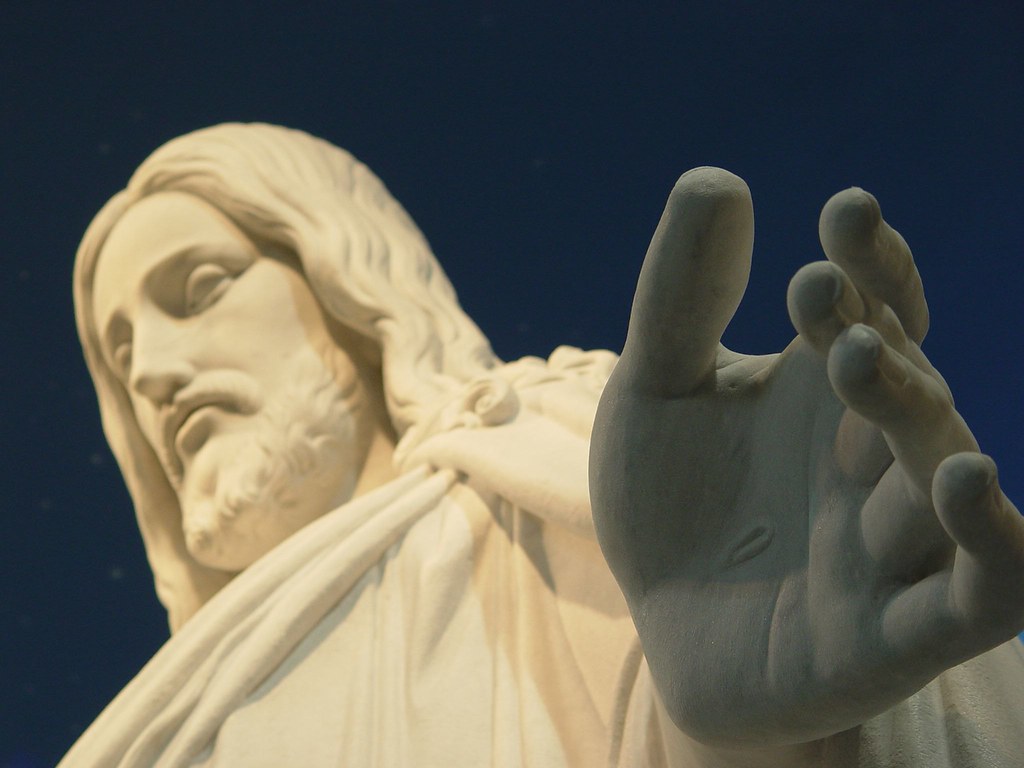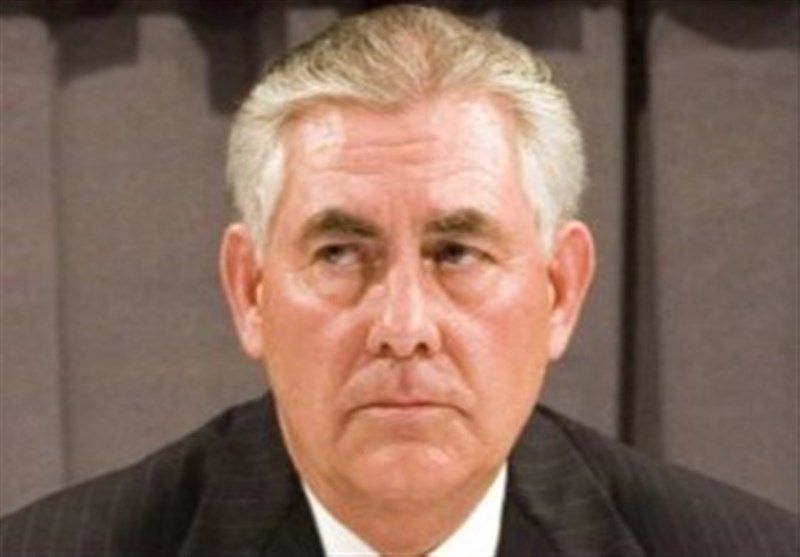
The recent actions of Christian music artist Forrest Frank have drawn significant attention, illustrating the challenging intersection of faith, public platform, and contemporary social discourse. Frank, known for his breakthrough Christian pop and hip-hop, recently announced a substantial loss of social media followers following his public comments related to the late conservative activist Charlie Kirk. This development has cast a spotlight on the singer’s resolve and his redefined mission for his musical platform.
At the heart of the matter lies Frank’s decision to leverage his platform for a pointed spiritual message, particularly in the wake of Kirk’s assassination. While celebrity figures often navigate carefully curated public images, Frank opted for an unfiltered declaration of his core beliefs, a move that resonated deeply with some while alienating others, leading directly to the documented decline in his follower count. His subsequent statements have only reinforced this commitment, signaling a potential shift in how he intends to use his widespread influence.
This article will meticulously detail the events surrounding Forrest Frank’s loss of 30,000 followers, exploring his candid statements about prioritizing spiritual conviction over popularity. It will also delve into the context provided by Charlie Kirk’s prior commendation of Frank’s music, Frank’s emotional response to Kirk’s death, his fervent call for repentance, and the factual backdrop of Kirk’s tragic assassination, all presented with the clarity and impartiality characteristic of Associated Press reporting.

1. **Forrest Frank’s Loss of 30,000 Social Media Followers** Christian music artist Forrest Frank publicly announced a significant reduction in his social media following, reporting a loss of approximately 30,000 followers. This substantial decrease occurred after he shared posts about conservative activist Charlie Kirk and explicitly stated, “Jesus Christ is Lord.” The announcement was made in a video published on social media, where Frank directly addressed the consequences of his outspoken faith.
In his video, Frank stated, “30,000 people unfollowed me because I posted about Charlie Kirk and I said that Jesus Christ is Lord.” This declaration by the “Your Way’s Better” singer brought immediate attention to the polarizing nature of his message. The unfollowing trend was a direct response to his decision to speak out on matters of faith and current events, particularly concerning Kirk’s recent death.
Frank’s Instagram video, shared on September 14, 2025, further confirmed the loss, detailing that tens of thousands had unfollowed him for “speaking out about the tragic events that took place at Utah Valley University on Sept. 10.” The widespread reporting across multiple news outlets underscores the verified nature of this follower drop, indicating a direct link between his public statements and audience reaction.
The incident highlights the challenges public figures face when their personal beliefs intersect with their professional platforms. For Frank, the decision to voice his convictions, particularly after Kirk’s death, resulted in a measurable demographic shift in his online audience. This outcome, however, did not deter the artist from his stated purpose, as subsequent remarks demonstrated.
Read more about: Forrest Frank’s Bold Stand: How a Viral Singer Embraced Faith and Lost 30,000 Followers

2. **Frank’s Unwavering Stance: Prioritizing Jesus Over Follower Count** Despite the reported loss of 30,000 followers, Forrest Frank maintained an unwavering stance, clearly articulating that his priority lies not with social media metrics but with promoting his faith. In his video, he emphatically stated, “Good. I don’t want you to follow me. I don’t want you to track my music. I don’t want you to come to my shows.” This direct rejection of followers who do not align with his core message underscored his commitment.
Frank elaborated on his condition for engagement, asserting, “I don’t want you to do any of that if you don’t do this one thing, and that is, follow Jesus Christ, the King of all kings, the Lord of all lords, the one who is, the one who is to come.” This statement leaves no ambiguity regarding his primary objective, repositioning his platform from a purely musical showcase to a spiritual conduit.
He further solidified his position in the caption of his video, which read, “i don’t care if you follow me, but i do care if you follow Jesus.” This concise declaration serves as a mission statement, indicating a profound shift in how Frank perceives and utilizes his public presence. His conviction appears to supersede any commercial or popularity-driven motivations previously associated with a burgeoning music career.
Frank’s statement, “I don’t know if you can feel it too. There’s a heaviness, something shifted, and I don’t care. I don’t care anymore. I just want you to know that Jesus Christ is here and He loves you,” emphasized his emotional connection to the spiritual message. His disinterest in superficial metrics reinforces a commitment to what he considers a more significant calling, aligning his public persona entirely with his evangelical faith.

3. **Repentance for a “Lukewarm Highlight Reel” and Renewed Commitment** In a powerful public statement, Forrest Frank expressed a profound sense of repentance for how he had previously managed his social media platform. He openly confessed, “I repent for ways I’ve allowed my platform to be a lukewarm highlight reel.” This acknowledgment signaled a critical self-assessment and a pivot in his approach to public engagement, moving away from what he perceived as a superficial representation of his life and faith.
Frank’s description of his platform as a “lukewarm highlight reel” implies a past tendency to present a sanitized or less zealous version of his beliefs, potentially to maintain broad appeal. His repentance signifies a rejection of this approach, emphasizing a desire for authenticity and uncompromised spiritual expression. This self-critique suggests a deeper spiritual conviction that now guides his public actions.
Following this repentance, Frank articulated a clear and renewed commitment to his mission. He declared, “From here on out, I’m using as much energy as I can to let people know about the only thing that matters.” This statement outlines a definitive redirection of his efforts, dedicating his platform to what he considers the paramount message of Jesus Christ.
The singer reiterated this commitment, stating, “I have nothing else to share but this one message, and I repent for ways I’ve allowed my platform to be a lukewarm highlight reel.” This underscores the singularity of his new focus, indicating that all future content and interactions will be aligned with his primary objective of sharing the Gospel. This shift represents a significant transformation in his public ministry.
Read more about: Forrest Frank’s Bold Stand: How a Viral Singer Embraced Faith and Lost 30,000 Followers
4. **Charlie Kirk’s Endorsement of Frank’s Music and its Gen Z Impact** Prior to his assassination, conservative activist Charlie Kirk had publicly praised Forrest Frank’s music, specifically highlighting its significant impact on Generation Z. Frank’s initial viral video post, which catalyzed much of the recent discussion, featured a clip of Kirk speaking positively about the Christian artist. This endorsement provided a crucial backdrop to Frank’s subsequent emotional and spiritual declarations.
In the circulated clip, Kirk articulated his observation of a spiritual trend, stating, “There is an undoubtable surge happening of Christian interest in this country.” He then connected this surge directly to contemporary music, noting, “The most popular music now for Gen Z is Christian music.” This assessment positioned Frank’s work at the forefront of a cultural and religious phenomenon.
Kirk further elaborated on Frank’s lyrical content, offering specific commendation. He remarked, “Even if you listen to Forrest Frank’s lyrics, they’re actually pretty biblically good and like, legit, like very good, like submitting to God’s will and His path.” This detailed praise from a prominent conservative voice affirmed the theological depth and artistic integrity of Frank’s music, validating its message to a wider audience.
The late activist concluded his remarks by framing the trend as a larger spiritual movement. “There’s something happening right now, and it’s a revival that is surprising a lot of the experts,” Kirk stated. His words not only elevated Frank’s profile but also situated his music within a broader narrative of national spiritual awakening, making his death a poignant moment for artists like Frank.
Read more about: Forrest Frank’s Bold Stand: How a Viral Singer Embraced Faith and Lost 30,000 Followers

5. **Frank’s Emotional Response to Kirk’s Death and “Heaviness”** Forrest Frank’s reaction to Charlie Kirk’s praise video quickly transitioned into a visibly emotional response, particularly after Kirk’s assassination. While watching the clip of Kirk, Frank’s “eyes welled up with tears” and he was seen closing his eyes and going off-camera to seemingly wipe them. This raw display of emotion underscored the personal impact of Kirk’s death on the singer.
Frank then articulated a broader, collective sentiment, stating, “Pretty much everyone of us, if not everyone of us, yesterday and today are just feeling this heaviness.” He contextualized this widespread feeling, explaining, “I think if I could summarize it, whether you know it or not, it is an angst for the return of Jesus — for the return of justice.” This connected the grief over Kirk’s death to a deeper spiritual longing.
The Christian singer expressed a renewed sense of urgency for his own platform, drawing parallels to Kirk’s boldness. Frank declared, “Charlie was so bold with his message, and I don’t feel comfortable using this platform to share music without stripping everything away and, like Charlie did, speak my mind to the core.” This indicated his decision to adopt a more direct and unvarnished approach to his public communication.
Frank’s commitment to speaking his mind stemmed from his profound emotional state following the tragic news. His comments conveyed a sense of spiritual awakening and a call to action prompted by the suddenness of Kirk’s passing and the underlying existential questions it raised for him and his audience. This emotional turning point redefined his public ministry.
Read more about: Forrest Frank’s Bold Stand: How a Viral Singer Embraced Faith and Lost 30,000 Followers

6. **The Urgency of Repentance: Frank’s Call for Spiritual Readiness** In the immediate aftermath of Charlie Kirk’s assassination, Forrest Frank intensified his public messaging, pivoting sharply to an urgent call for repentance and spiritual readiness. He asserted, with palpable conviction, “The reality is that Jesus Christ is the only way, and He’s coming back soon, and when He does, every single knee will bow.” This direct theological declaration became central to his renewed platform.
Frank’s voice was noted to be “shaking” as he delivered this message, emphasizing the gravity of his conviction. He urged his followers, “It’s time [to] repent and get your life right, because we don’t know if today is our last day.” This direct appeal underscored a belief in the imminence of Christ’s return and the necessity of immediate spiritual preparation.
The “God Is Good” singer reiterated this theme in his subsequent video, linking the spiritual urgency to the events surrounding Kirk’s death. He stated, “If you have not gotten your heart right with Him and dropped down on your knees and repented to Him, today is the day. The hour is at hand.” This consistent message highlights his belief that recent events served as a stark reminder of life’s precariousness.
Frank’s fervent call to repentance resonated with his declared mission to move beyond a “lukewarm highlight reel.” His urgent pleas for individuals to reconcile with Jesus Christ reflect a deep-seated desire to utilize his platform for eternal matters, rather than transient entertainment or personal gain. He expressed a personal conviction that “something shifted” culturally, necessitating this direct spiritual counsel.

7. **Details Surrounding Charlie Kirk’s Assassination** Charlie Kirk, co-founder and executive director of Turning Point USA and TPUSA Faith, was tragically assassinated on September 10, 2025. The incident occurred during an event at Utah Valley University, where Kirk was speaking before an audience of more than 3,000 people. This sudden and violent death sent shockwaves through conservative and Christian communities nationwide.
Law enforcement reports indicate that the shooting involved a single round fired from a considerable distance. The shooter, identified as 22-year-old Tyler Robinson, reportedly “fired a single round from a distance of 200 yards while perched on a building.” Robinson was subsequently arrested on suspicion of aggravated murder, felony discharge of a firearm causing serious bodily harm, and obstruction of justice charges.
Kirk was reportedly “fatally shot in the neck” during the event, a detail that underscores the severity of the attack. His death marked a significant loss for the organizations he led and the movement he championed. The suspect, Tyler Robinson, was ordered held without bail, with formal charges anticipated shortly after his arrest.
The late activist is survived by his wife, Erika, and their two children. At the time of his death, Kirk had been actively engaged in touring campuses with his “Prove Me Wrong” speaking series, highlighting his commitment to engaging young audiences on critical issues. His assassination prompted widespread condolences and reflections from numerous public figures and religious leaders.
Read more about: ABC Pulls ‘Jimmy Kimmel Live!’: An In-Depth Look at Affiliate Power, FCC Pressure, and the Future of Late-Night Broadcast

8. **Condolences from Michael W. Smith** In the solemn aftermath of Charlie Kirk’s assassination, veteran CCM artist Michael W. Smith publicly shared his profound sorrow and solidarity. Smith took to Instagram, articulating a deep emotional response that echoed the sentiments of many within the Christian music community and beyond. His message conveyed immediate grief, stating, “We are numb. Our hearts break for Charlie Kirk’s family, and for all of those who’ve lost loved ones to senseless violence lately.”
Smith’s post underscored a broader concern for the state of the world, acknowledging the pervasive nature of tragedy. He further wrote, “Our world is broken. I have been struggling to find words (or music) to express my deep ache.” This honest reflection highlighted the difficulty of processing such events and finding solace through art.
Despite the evident pain, Smith conveyed a powerful message of unwavering faith and resilience. He declared, “But I know this: I am not shaken, not defeated, not afraid.” This steadfast assertion offered a beacon of hope, reinforcing a conviction that spiritual foundations remain strong even in tumultuous times. It served as an encouragement to those grappling with despair.
He concluded his statement by affirming his absolute trust in divine providence, offering a perspective of reassurance. Smith confidently stated, “I know God’s record of carrying his children through tragedy and it’s flawless. 100% of the time he comes through.” This powerful testament to God’s faithfulness sought to comfort grieving hearts, reminding them of consistent divine support in overcoming adversity.
Read more about: Forrest Frank’s Bold Stand: How a Viral Singer Embraced Faith and Lost 30,000 Followers

9. **CeCe Winans Shares Message of Comfort** Gospel music icon CeCe Winans also extended her heartfelt prayers and a message of comfort following the assassination of Charlie Kirk. Utilizing her Instagram Stories, Winans directly addressed Kirk’s family, reflecting the widespread compassion and unified grief permeating the Christian artistic landscape. Her communication aimed to provide spiritual solace during a difficult time.
Winans’ message was steeped in empathy, focusing on the power of prayer for healing. She wrote, “My heart goes out to Charlie Kirk’s family! Praying for the God of comfort to comfort them.” This specific prayer highlighted a belief in a compassionate deity capable of providing peace amid profound loss.
Further, she invoked a powerful biblical promise, emphasizing God’s closeness to those suffering. Winans added, “May God’s love surround them and give them peace. Psalm 34:18: The Lord is near to the brokenhearted and saves the crushed in spirit.” This scriptural reference provided a source of profound spiritual strength, reminding individuals that comfort is accessible even in the deepest sorrow. Her words reinforced a message of divine care and unwavering support.

10. **Tauren Wells Addresses Societal Violence and Spiritual Warfare** Tauren Wells, a prominent Christian artist and the designated host for the upcoming GMA Dove Awards in October, delivered a comprehensive and deeply emotive response to Charlie Kirk’s assassination and the surge of recent violence. Wells openly conveyed his personal struggle to process these events, admitting the profound impact they had on him as an individual of faith, a spouse, a parent, and a pastor. His extensive statement reflected a desire to address the tragedy from multiple perspectives.
In a powerful Instagram post, Wells detailed the widespread and escalating nature of violence across various segments of society. He lamented, “The violence that has transpired over the last several weeks, days, and hours in our neighborhoods, schools, communities, churches, and campuses, just that I happen to be aware of, is absolutely horrendous and gut wrenching.” This stark depiction underscored the pervasive sense of insecurity felt across America in 2025.
Wells then powerfully articulated the harrowing reality of contemporary threats, emphasizing the unexpected and brutal ways lives are being lost. He noted, “The reality that you can be stabbed and killed while sitting doing nothing, or our children targeted while they learn and play, or shot and killed for standing for what you believe in in 2025 in America, is painful. Sobering.” This direct acknowledgement of senseless acts highlighted the urgent need for reflection and action within society.
He further attributed these “senseless acts of violence” not merely to human agency but to “demonic forces of hatred,” advocating for a profound spiritual awakening. Wells passionately urged, “Especially, the Church should be provoked into taking our spiritual position of intercession to activate our prayers and all of Heaven’s forces to wage war against our invisible enemies!” This call positioned the Christian community at the forefront of a spiritual battle against evil.
Wells concluded his heartfelt and extensive message by extending his sincere prayers to the entire Kirk family, including his wife and children. He expressed a fervent hope for divine intervention, stating, “Our heart and prayers go out to Charlie Kirk’s entire family, wife and children and I pray that the powers of darkness at work would be exposed and expelled by the power of Jesus Christ.” His words reinforced a collective commitment to spiritual warfare and intercession as a means of combating darkness.

11. **Charlie Kirk’s ‘Prove Me Wrong’ Speaking Series** At the time of his tragic death, conservative activist Charlie Kirk was deeply immersed in a significant national outreach initiative: his widely recognized “Prove Me Wrong” speaking series. This impactful series involved extensive tours across numerous college campuses, serving as a cornerstone of his strategy to engage young audiences in robust discussions on crucial and often contentious issues. Kirk’s commitment to youth engagement was a hallmark of his ministry and activism.
The “Prove Me Wrong” series embodied Kirk’s dedication to intellectual discourse and his willingness to challenge prevailing narratives. These events were designed to provide a dynamic platform for vigorous debates, actively encouraging participants to critically examine entrenched societal, cultural, and political viewpoints. His goal was to foster an environment where ideas could be openly and thoroughly tested.
Kirk’s deliberate decision to focus specifically on university campuses underscored his strategic commitment to influencing younger generations. He aimed to directly present conservative perspectives and faith-based arguments to students, thereby cultivating an atmosphere where diverse opinions could be rigorously explored and discussed. This approach sought to empower young people to think critically rather than passively accept information.
The series not only allowed Kirk to share his convictions but also invited direct challenges, living up to its provocative title. This methodology distinguished his engagement, emphasizing transparency and a readiness to defend his positions. It highlighted his mission to engage with those who might hold differing opinions, promoting genuine dialogue rather than mere presentation.
Read more about: Forrest Frank’s Bold Stand: How a Viral Singer Embraced Faith and Lost 30,000 Followers

12. **Public Funeral Arrangements for Charlie Kirk** Following the profound shock of Charlie Kirk’s assassination, details regarding his funeral services were promptly announced, with plans for a large-scale public gathering to honor his life and legacy. The memorial event is scheduled to take place at State Farm Stadium in Glendale, Arizona, on September 21. This substantial choice of venue strongly suggested an anticipation of significant public attendance, reflecting his widespread influence.
To facilitate attendance and provide essential information, a dedicated website, fightforcharlie.com, was established in his memory. This digital platform outlined logistical details for those wishing to participate in the services. The website clearly specified that doors for the public would open at 8 a.m., ensuring ample time for attendees to arrive and be seated before the official proceedings began.
The main memorial program is slated to commence at 11 a.m., promising a structured and comprehensive tribute to Kirk’s impactful life and enduring contributions. These carefully planned arrangements underscored the widespread resonance of his work across conservative and Christian communities. The funeral was envisioned as a collective opportunity for his supporters to mourn his passing, celebrate his unwavering commitment, and reflect on his considerable legacy.
Read more about: Unpacking the Outcry: TMZ’s Mea Culpa After Laughter Disrupts Charlie Kirk Assassination Coverage

13. **Forrest Frank’s ‘Let’s Make Heaven Crowded’ Message** In the midst of the controversy surrounding his follower loss and the renewed focus on his spiritual mission, Forrest Frank articulated a profoundly impactful and inclusive message: “Let’s make Heaven crowded.” This statement directly echoed a sentiment previously expressed by Charlie Kirk’s wife, Erika, in her tribute to her late husband, further intertwining their narratives. Frank’s adoption of this phrase served as a powerful rallying cry, encapsulating the core of his redefined evangelical outreach and purpose.
This declaration unequivocally underscored Frank’s conviction that the ultimate purpose of his platform transcends mere musical entertainment or the pursuit of personal popularity. He explicitly clarified his redirected focus, stating, “I’m saying that it’s all a waste and I have failed if this message isn’t clearly stated.” This powerful assertion emphasized the paramount centrality of the Gospel message within his public identity and artistic endeavors, making it his non-negotiable priority.
Furthermore, Frank extended a clear and inviting message of inclusivity, assuring his diverse audience that “Everyone is welcome.” This expansive invitation aimed to bridge potential divides and actively encourage all individuals, regardless of their background or previous beliefs, to earnestly consider his urgent spiritual call. His commitment to this message aligns seamlessly with his renewed dedication to sharing what he deems “the only thing that matters”—the transformative message of Jesus Christ.
The phrase, originally linked to Erika Kirk’s poignant comments in her tribute to her husband and father of their two children, symbolizes a shared spiritual objective that now deeply resonates with Forrest Frank’s own fervent commitment. It represents a collective aspiration within the Christian community to spread the message of salvation as widely as possible, ensuring that the eternal message reaches as many souls as possible.

14. **Alternative Report on Frank’s Criticism of Kirk’s Rhetoric** An alternative account regarding Forrest Frank’s significant social media controversy suggests his follower loss stemmed from direct criticism of Charlie Kirk’s rhetoric. This report posits Frank publicly voiced concerns, asserting, “I’m calling you out because I think your rhetoric has been reckless.” This perspective contrasts with other reports attributing the loss solely to his declaration of “Jesus Christ is Lord,” indicating a more complex underlying cause for the backlash.
This viewpoint rooted the dispute in Frank’s unease regarding what he perceived as inflammatory and potentially dangerous language employed by Kirk. Frank reportedly emphasized the profound societal impact of words, stating, “We have to consider the weight of our words.” This highlights Frank’s deep belief in responsible communication, particularly for individuals commanding significant public platforms, and his desire for more thoughtful discourse.
Frank explicitly clarified his ethical position by linking public rhetoric directly to Christian principles. He asserted, “If we’re going to call ourselves Christians, then our words need to reflect that.” This underlined his unwavering commitment to promoting kindness, compassion, and love through public discourse, suggesting a moral obligation for leaders to communicate constructively and avoid language that could incite harm or division.
Despite Charlie Kirk’s alleged stance that his comments had been misinterpreted, Forrest Frank reportedly stood firm in his critique. He consistently emphasized the critical need for accountability regarding one’s public words and actions. Frank candidly acknowledged the potential personal and professional backlash for speaking out against a prominent figure like Kirk, remarking, “I knew there were gonna be consequences,” yet he chose to take a principled stand.
This alternative account further highlighted Frank’s profound willingness to prioritize his deeply held convictions over mere popularity or social media metrics. He unequivocally stated, “If I lose followers because I stood up for something I believe in, then I’d rather lose followers.” This powerful declaration illustrates a dedication to integrity and his beliefs, regardless of any adverse impact on his online following. This report offers a different and equally important lens through which to comprehend the initial controversy and Forrest Frank’s underlying motivations.
The complex interplay of faith, public discourse, and deeply held personal conviction, vividly illustrated by Forrest Frank’s recent actions, presents a compelling and timely case study. It showcases the evolving landscape of Christian influence in contemporary society and the challenging dynamics faced by public figures of faith. His unwavering commitment to his spiritual mission, maintained even in the face of significant public scrutiny and the tangible loss of online followers, underscores a growing movement among artists to prioritize evangelical outreach and gospel dissemination above all other considerations. As the Christian community continues to navigate a world increasingly characterized by rapid digital communication, polarized viewpoints, and heightened social tensions, the challenges and profound opportunities for influential figures like Frank will undoubtedly continue to shape the ongoing narrative of faith in the public square for years to come.





